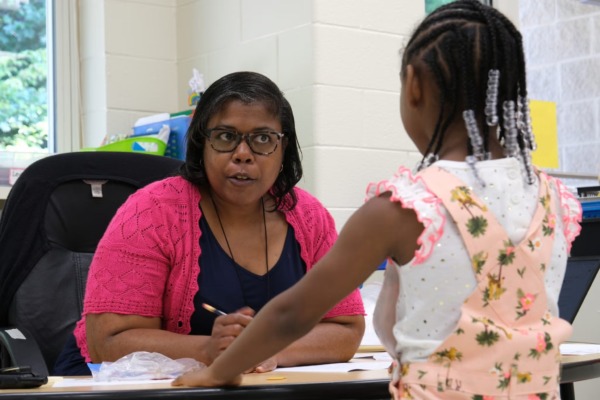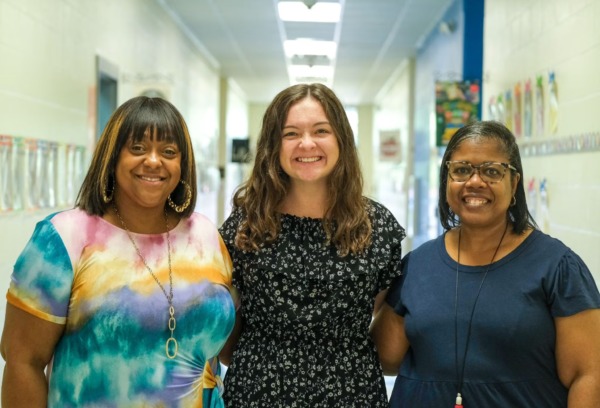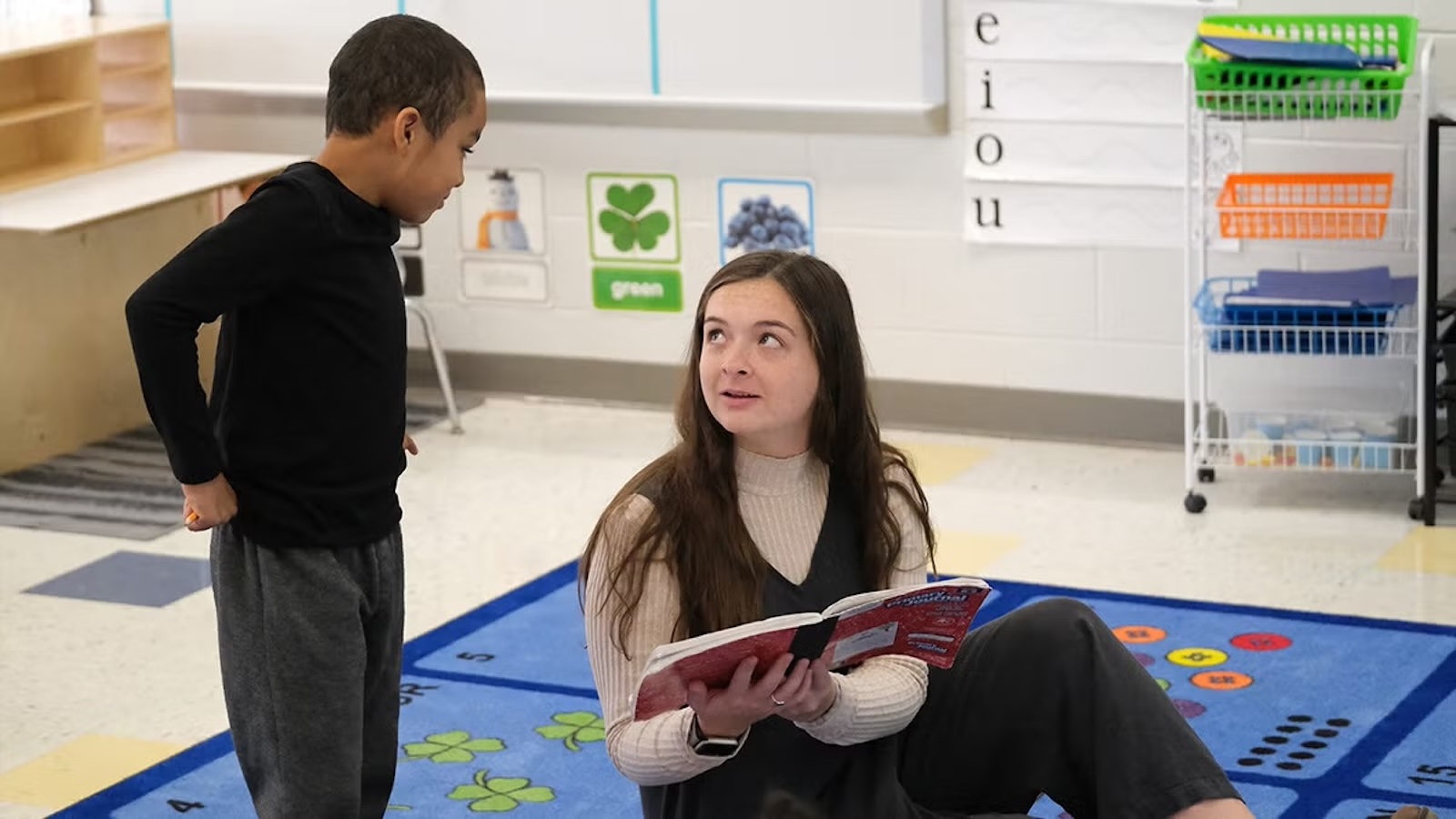A partnership between UNC-Chapel Hill and Person County Schools, Carolina Community Academy has worked to bring the best of what Carolina has to offer to each student since opening in 2022. That commitment to students has led to a significant increase in proficiency across school subjects since the lab school opened.
Led by the UNC School of Education, the K-2 lab school in Roxboro takes a whole child approach. With smaller class sizes and wraparound services from a school counselor, school social worker, health professionals and others, the lab school enables teachers to focus on high quality instruction.
“It has everything to do with the people inside the building. The staff who show up every day to do the hard work of crafting excellent lessons, meeting students where they are and providing support services,” said Amy Richardson, director of the academy and PK-12 Partnerships at the UNC School of Education. “The teachers are the ones in the classrooms every single day with students, being responsive and well prepared for them.”

Since Day 1
Kindergarten teacher Takeima Ricks ’01, ’16 (MEd) has been with Carolina Community Academy since Day 1 and worked at North Elementary, where CCA is now housed, for 23 years. “With the smaller class size, I have a greater impact on my students and give them more one-on-one attention,” said Ricks. “It helps me focus on their needs and connect with the University, using the extra resources we have, like bringing them to a college campus to experience things outside of their community.”
Those smaller class sizes led to better literacy rates in Ricks’ classes and more trust and satisfaction from families. “It helps them feel pride in the school, knowing their children are getting the best education they can and they’re achieving,” said Ricks. “Every parent feels their child can achieve, but they can see it.”
Ricks enjoys connecting with parents through the school’s learning system, Class Dojo. She sends a weekly newsletter to parents, to provide an overview of school updates and events.
“Beyond the children and families, I love how supported I feel by administration and staff, too,” said Ricks. “I’m supported in the decisions I’m making and told I’m doing a good job in helping my students grow.”
Connecting with the community
Rosalyn Spencer started teaching kindergarten in January after being a teaching assistant for 19 years and Ricks’ assistant for five. In December 2024, the Roxboro native graduated from North Carolina Central University with a bachelor’s degree in elementary education. She chose to stay at CCA because of her love for Person County and the school’s environment.
“I didn’t want to leave because the teachers here are passionate about their job, and I have so many relationships with parents,” said Spencer. “They’re more open to trust me since I’ve grown up with them. It’s important the parents and children trust me because they will learn better from us.”
Spencer found the transition from assistant to teacher smooth thanks to the smaller class sizes and Ricks’ guidance.
“I’ve learned so much from Ms. Ricks. Working with her and having the smaller class sizes is a big part of our success in helping the kids,” said Spencer. “When you have 12 kids, a teacher and an instructional assistant, it’s easier to give them individualized care and focus on the areas they’re struggling in.”
Spencer says the staff, from fellow teachers to the principal, is what got her through her first half-year of teaching.
“Everybody is so supportive. That’s what I fell in love with right away,” said Spencer. “The way they jumped in saying, ‘What do you need? What can I help with?’”
A new face at CCA
Madison Sturdivant ’23, ’24 (MAT) finished her first year teaching with more than 90% of her students proficient in reading, compared to a 70% state average for first graders. The smaller class sizes at the academy helped her connect with students.
“There is such an emphasis on each individual student,” said Sturdivant.
She said she wants her students to understand that higher education is accessible. “I never saw a college campus, and now I get to take 6-year-olds to a college where they can go one day,” said Sturdivant. “This sets the foundation for them to know this learning, reading and work are worth it.”

Sturdivant felt prepared going into her first year teaching because of the UNC School of Education’s Master of Arts in Teaching program. The program taught her that each student comes from a different background and circumstance and learns differently. Most importantly the program taught her how to serve every student and to build a strong, welcoming classroom community.
“I want my students to feel like family. If there’s some instability going on at home, I want this to be what remains constant in their life,” said Sturdivant. “I want my students to see themselves in my classroom, see their work on the wall.”
The support that teachers provide to each other trickles over into supporting students thrive. “We hope we are balancing the class size ratios, environment and teacher working conditions,” said Richardson. “I’m so thankful our teachers get a chance to shine in what they do every day.”
